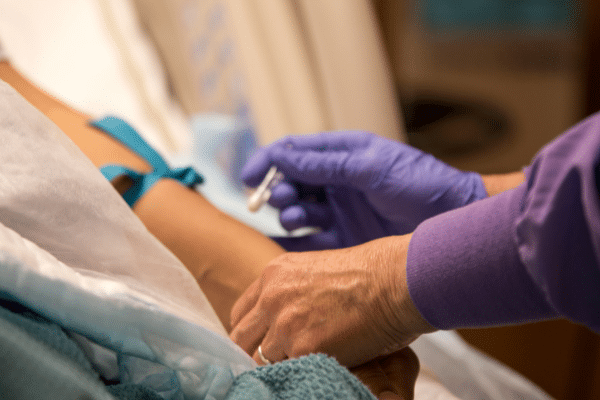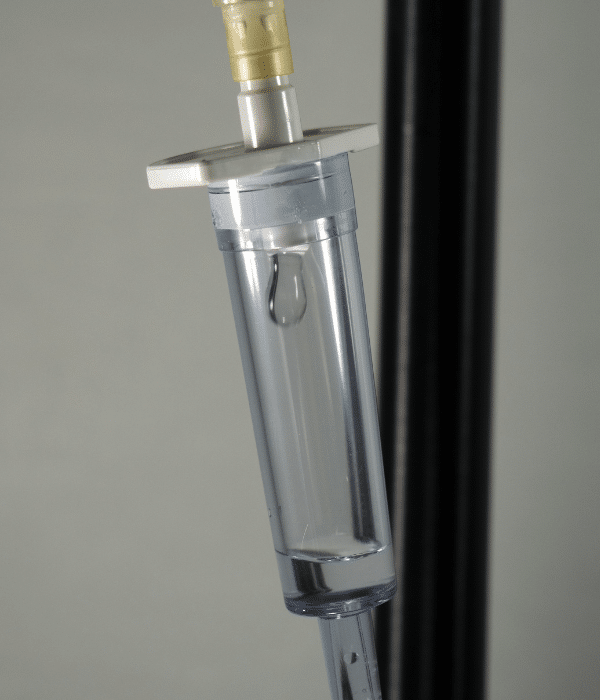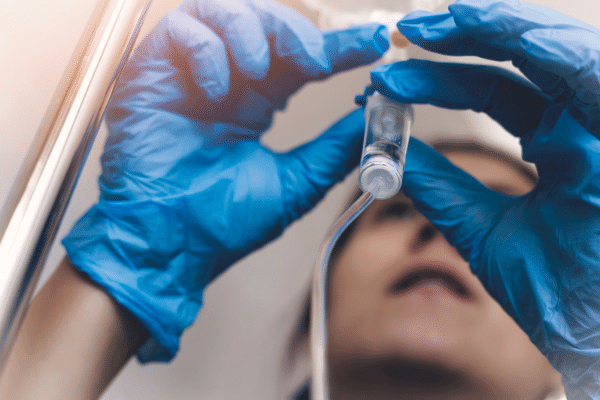Dehydration can be a serious concern that requires outpatient hydration infusions for some individuals. People who are quite ill with profuse vomiting or diarrhea or who work or play in extreme, hot temperatures can become so dehydrated that they begin experiencing troubling symptoms that can signal trouble. Know the signs of dehydration, what is involved in outpatient infusions, and the benefits of them, and then find a local urgent care that offers this service should it be required in the future.
What is Outpatient Hydration?
Outpatient hydration infusions can be used to rehydrate to levels in which the body can reduce potentially life-threatening symptoms of dehydration to work more optimally. These treatments are typically done intravenously and deliver the body fluids filled with important electrolytes such as potassium, B vitamins, magnesium, calcium, and sulfate.

Conditions That May Require Hydration Infusions
Dehydration in general requires the body to be hydrated back to more normal levels. However, in cases where consuming water or liquids that contain electrolytes are not enough on their own, outpatient hydration infusions may be required.
Some of the conditions that can signal dehydration that needs to quickly be addressed can include:
- Confusion
- Dry mouth
- Dizziness
- Lethargy
- Headache
- Rapid heartrate
- Rapid breathing
- Little or no urine output
- Shock
- Seizures
Dehydration that is not addressed or properly treated can progress and lead to potentially life-threatening situations. If you or someone you know is experiencing the above symptoms, they could be dehydrated and may need medical attention.
How Outpatient Hydration Infusions Work
Patients who undergo outpatient hydration infusions will be hooked up to an IV which will deliver fluids filled with key vitamins and electrolytes directly into the bloodstream. The fluid is slowly released into the system for the best results. Normally, the treatment can take up to an hour.
A medical professional will likely examine the patient to monitor their vitals and ensure that their overall health is gradually improving during the treatment. Most individuals can tell a difference in how they are feeling at the conclusion of a treatment, and that can increase in the subsequent hours after as well.

Potential Side Effects of Hydration Infusions
For the most part, the risk of side effects from outpatient hydration infusions can be rather small. The most common side effects can be an infection occurring at the site of the IV or the IV becoming dislodged from the vein.
Any time a substance is to be injected directly into the bloodstream, it is vitally important that a patient relay any underlying medical conditions and medications they have to the provider. This helps them better assess the situation and treat you in the best manner possible.
Benefits of Outpatient Hydration Infusions
Hydration can take many forms including drinking water or fluids with electrolytes, but there are some unique benefits that can come with outpatient hydration infusions such as:
- Faster absorption and recovery. Drinking lots of fluids can help with dehydration but can require some time to truly take effect and make its way through the body to be absorbed. However, when an infusion is administered via a needle into the vein, it can enter the bloodstream much more quickly, which can facilitate faster absorption and faster results.
- Customization. Outpatient hydration infusions do not have to be a one size fits all. They can be customized for a patient based on the state of their condition.
- Detoxification. With the introduction of key fluids into the bloodstream, they are able to reach major organs more quickly, which enables organs like the kidneys and liver to then flush out existing toxins with greater capacity.

Getting Outpatient Hydration Infusions at Urgent Care
Hospitals have long had the ability to provide hydration infusions but are often so inundated with patients that finding the space and time to do so can be difficult. Particularly in the midst of a pandemic, hospital waiting rooms are more crowded than ever before, which can provide challenges for those seeking medical care. Fortunately, neighborhood urgent care centers tend to serve a smaller geographic area than hospitals and often have fewer people in the waiting room with a lesser wait time.
In addition, urgent care facilities also offer a convenience that is hard to beat. Although these centers are open during the daytime, their weekday hours often extend beyond the normal hours for close of business. They may also offer patients some limited weekend hours as well. Many patients find these hours more accommodating when it comes to balancing family and work obligations with getting healthcare.
This flexibility with business hours becomes an even bigger perk when it is combined with the fact that urgent care centers do not rely on appointment scheduling. Most of these centers welcome walk ins with no appointment required.

If you are feeling dehydrated and are seeking outpatient hydration infusions, reach out to your local urgent care center today to see how they might be able to help.




